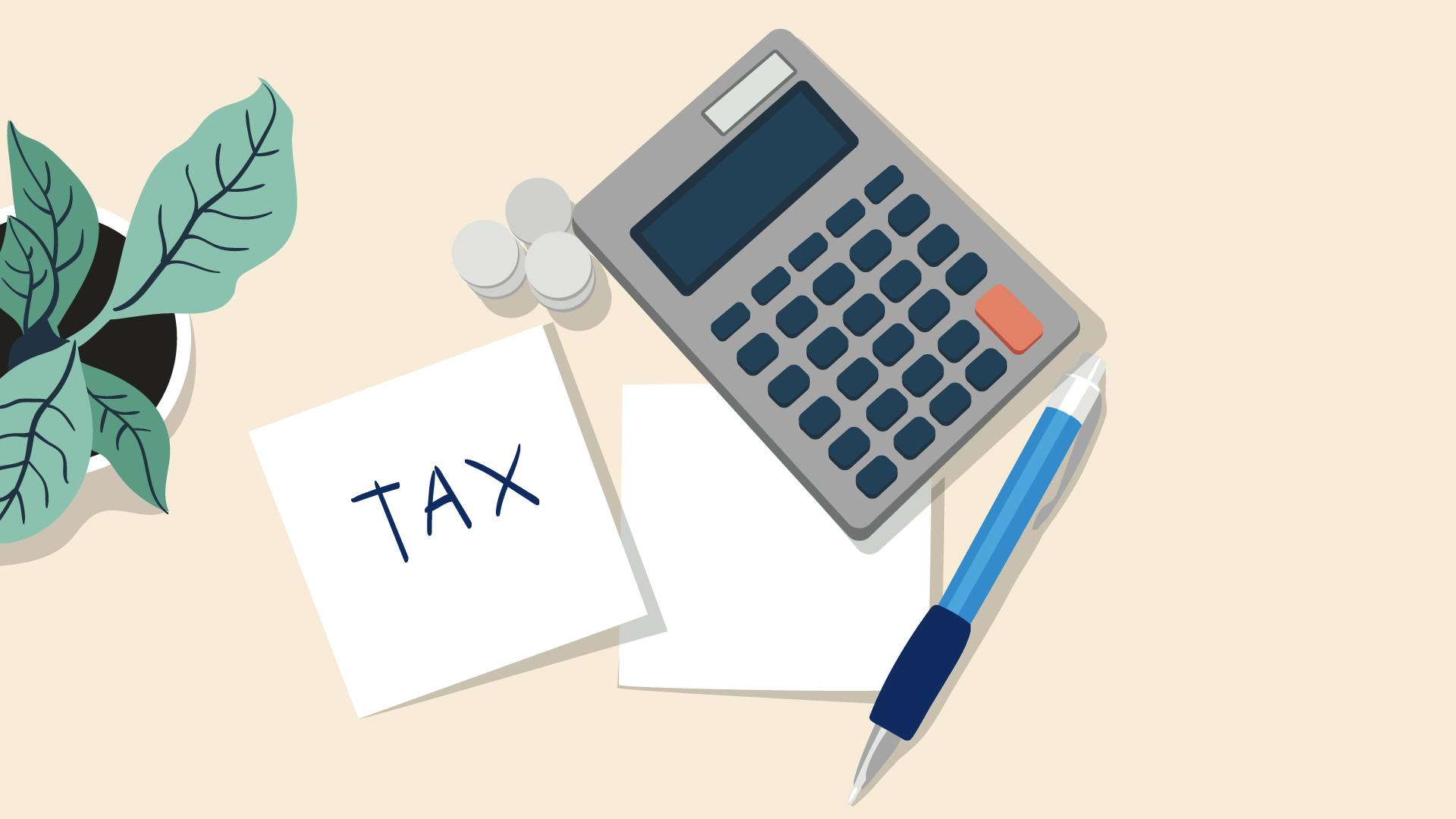2020 Tax Year Deadlines for Freelancers and Self-Employed: mark your calendars
Last updated on May 23, 2023
Kate Bailey
Freelance Editor
Jun 3, 2020
What sucks more than paying taxes? Paying fines for being late with your returns or submissions. This is an entirely new world for fresh freelancers and self-employed to wrap their minds around, and it’s also something it takes those who have been doing it already - a few years to get really good at. Let’s make sure you’re on track for 2020, and what to do if you’re not!
For many freelancers we have come from different backgrounds or even if you’re German a non-business background, and the tax obligations and procedures are some of most rigorous and demanding in the entire world - and they make no secret of it. The office in charge, the Finanzamt (Link) , are notorious for their no exceptions methods and quick follow up on any and all basic errors.
Many people share their stories of long waits and difficulties with agents and even the smallest issues with forms, which may have been given wrong in the workplace! Make no mistake, you want to make no mistakes with them because the punishment can be financial - and always helps to have them on your good side. Some good news
Of course, this is the part where we remind of you of all the awesome ways Kontist can help you automate the intricacies of expense management, VAT reservation and reporting obligations - and it’s one of the reasons our company was founded - to help you stay on top and stay ahead. Right, let’s get into it.
The German tax and financial year follows a standard calendar year - meaning your financial year begins on January 1 and ends on December 31. Income Tax is most likely paid quarterly, in advance, based on pre-payment estimates from the Finanzamt. It can, at times, take two years to have accurate prepayment figures.
VAT is most likely reported monthly, however, this can also be done on a quarterly term - either way, it too often carries pre-payment basis. Trade Tax is also paid quarterly in the same circumstances as the income tax. Then, annually, you will complete a tax assessment once the financial years closes - which reports on your entire income, taxes, deductions, expenses and revenues. The deadline for this is the 31st of July in the following financial year. Therefore, your 2019 tax assessment must be completed and submitted to the Finanzamt by July 31, 2020.
You may be a commercially registered business - depending on your profession, and this is determined when you set up your business. If you are - then in addition to income tax you may be liable for a municipality determined trade tax.
This can range from 7% and up to 17.5% and is pre-determined for prepayment on a quarterly basis with the final assessment to be completed at the end of the financial year with your annual declaration. In the event your income does not exceed EUR 24,500 you will not be liable for this tax.

Before we move onto VAT, here is a quick overview of the tax deadlines, as per tax category:
- VAT (monthly payment): 10th January, 10th February, 10th March, 10th April, 10th May, 10th June, 10th July, 10th August, 10th September, 10th
October, 10th November und 10th December - VAT (quarterly payment): 10th January, 10th April, 10th July, 10th October
- Income tax and corporate tax: 10th March, 10th June, 10th September, 10th December
- Industry tax and property tax: 15th February 15th May, 15th August, 15th November
Assuming now that you know you still must do your income tax and, if applicable, your business tax on an annual basis. The larger assumption here is that you are registered for VAT or considering that you will have to register for VAT. Value Added Tax (VAT) in Germany is, by law and officially, “Umsatzsteuer”. However, you may also see the term “Mehrwertsteuer”. Both terms have the same meaning, so do not be confused by this.
Germany recognised not every business would be large enough to accommodate VAT. So, if your revenue is less than 17,500 EUR per year, you can register as a Small Trader or Kleinunternehmer. In this case which is the most likely for freelance business in the first two years, you will also need to estimate your income for the following year, bearing in mind that you may be liable for VAT in the case you exceed this revenue cap. In the event of exceeding this limit in the course of a pre-estimated financial year, you will be required to begin paying VAT the following year.
To recap, this is Value Added Tax, that is passed onto the final customer/consumer with all the manufacturing or labour based taxes having been added along the way, making it an ‘indirect’ tax. Basically, what happens in the reporting cycle is that you accumulate your expenses and earnings separating your revenue from the VAT on both sides. You will either take less or more than you earned.
If there is a surplus of VAT inputs over outputs (more VAT incurred than charged), then a German VAT credit arises. In theory, this is due back to the VAT registered business. In the German VAT return, there is a box to tick to apply for a refund which should be returned within three months. However, this may trigger a VAT audit by the tax authorities. Otherwise, the credit is rolled over to the next filing.
According to §18 of the Umsatzsteuergesetz (VAT law) for the first 2 years after starting activity, you will have to do a VAT announcement (Umsatzsteuervoranmeldung) each month AND pay each month as well. For example, if you had a net turnover of 2000 EUR plus 190 EUR VAT in April 2020, you have to electronically announce that to the Finanzamt electronically by May 10th, 2020 AND have also transferred the 190 Euro into the Finanzamt's bank account by May 10th, 2020.

Quick Notes for Expats about Double Taxation
Double taxation agreements ensure that nobody has to pay tax on the same income twice. Technically, it would be possible for someone to be liable to pay tax in two countries - for example, if you’re a cross-border commuter.
Germany has double taxation agreements with multiple countries worldwide. You can see a full list of countries on the Federal Tax Office’s website. This means that income earned worldwide will be used to calculate your tax bracket and the amount of tax to pay on income in Germany. You will not be taxed by the German tax authorities on income earned elsewhere that has already been taxed.
What to do if you have missed or may miss the deadlines?
The first answer is to get a tax advisor. There is no doubt the most assured way to progress and remain focused on your business is to just get a tax advisor! If you have missed the deadline already this year, it is the only thing that can keep you 100% out of trouble. They are well versed in being able to communicate effectively with the Finanzamt and that means It is really important to have a good solution here - but hopefully now you know the best path forward from here, and just remember, don’t let the deadline pass! Sometimes, the problem is not as simple as saying: OK, I will just get a tax advisor now.
The second answer is to make contact with your Finanzamt and see if they can provide any assistance or put you in contact with organisations who can help. If you reach out to them before the deadline, they may be willing to grant an extension of offer more time - it is rare, but if it is asked with a genuine reason behind it and the intention to submit/ pay, it may be a great move to relieve some pressure.
One of the reasons it's important to stay on top is to avoid unnecessary debt and to have a sustainable, long-term business. We hope we’ve given you a healthy reminder or overview of what will help you meet your deadlines!
Related articles
Freelancers - What Hourly Rate Should You Charge?
There are a lot of assumptions about Freelancers and self-employed people. Some are true - yes the freedom to make the schedule and ‘’choose’’ your clients is great. However, unlike a standard 9 to 5 job where your role is clear and defined, where the organisation you work for scales your salary and aligns it closely with specific experience and also - provides a pathway to earn more, freelancers are left to structure their income themselves as well. The assumption is - this is great, you can really charge what you are worth! However, clients tend to assume freelancers have a ‘’discounted rate’’ or that their direct rate entitles them to harsh negotiations. Quite simply, this is not the case. For freelancers, in this case, it is very important to know how much you should charge, and why - so you can negotiate your worth. In this article, we are going to take a look at what hourly rate you should be charging.
Kate Bailey
Freelance Editor
